Covid-19 Projects

COVID-19 Trade Policy Database: Food and Medical Products
Many governments are using trade policy measures to increase the availability of personal protective equipment, medical supplies, and food products during the COIVD-19 pandemic. Such measures may take many forms and be carried out by different government agencies. Tracking them is important for assessing their incidence, effectiveness, and potential international spillover effects—particularly on countries that depend on imports of these critical products.
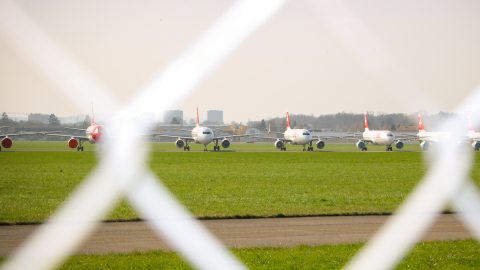
Citizenship, Migration and Mobility in a Pandemic: A Global Study of COVID-19 Restrictions on Human Movement
Governments worldwide have taken an unprecedented array of measures affecting human mobility to curb the spread of COVID-19. Examples include evacuations, lockdowns and travel restrictions. Some states have applied these public health measures only to those with citizenship status, while others have included long-term foreign residents and settled migrants. We examine these choices and how they challenge our understanding of citizenship, migration and mobility.

Citizenship Governance in the Age of Covid-19: The Case of Social Credit
The Covid-19 crisis has triggered a new wave of digitalisation. To counter the devastating effects of the virus, states and corporations are experimenting with systems that surveil citizens. Emerging technologies are increasingly used to assign ‘social credit’ to individuals, classifying them as healthy or unhealthy, safe or dangerous, trustworthy or treacherous. Such systems track citizens, rank or score them, and nudge or steer their behavior.
This project explores the models of social credit systems being developed and their effects on our lives. It argues that such systems remodel theories and practices of law enforcement, governance and citizenship, creating new concepts like ‘digital panopticon’ or ‘algocratic governance’. The project invites us to consider the technological challenges that will shape the institution of citizenship in the 21st century.
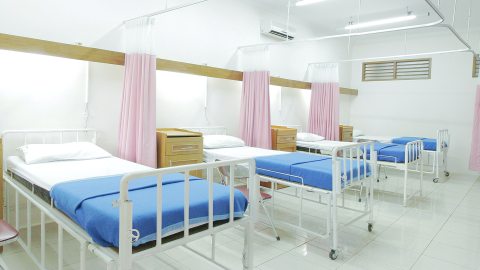
GlobalStat and the Covid-19 Crisis
GlobalStat is an aggregated statistics portal with tools for analysing data on social, political, economic, environmental, and sustainability variables worldwide. It sponsors two projects related to Covid-19. ‘Comparing contexts of evidence dissemination: The effect of crisis characteristics on the politicisation of expert knowledge’ studies how expert knowledge has been politicised in evidence-informed policy-making.
The project uses a comparative perspective to analyse the effects of different types of crisis, including the current Covid-19 pandemic. ‘Dynamics in Public Health Infrastructure: Hospital Beds and Covid-19’ looks into health system parameter and frames questions for future research on the topic. It analyses how health infrastructure and systemic conditions impact health crisis responses. Moreover, Globalstat’s ‘Living in the EU’ joint publication series with the European Parliamentary Research Service mirrors COVID-19 related developments in all issues planned for 2020, as in its latest version on working in the EU.
Gaby Umbach, Director of GlobalStat and Part-time Professor, Schuman Centre
Forms and Dynamics of Global Governance


Indirect Governance Beyond Principal-agent Theory
The projects of this research area investigate patterns and dynamics of global governance. The aim is to identify conditions of success and failure. The approach is interdisciplinary combining perspectives from economics, political science and public administration.


The Transformation of Global Governance
The Transformation of Global Governance Project is a horizontal initiative at the European University Institute, a joint endeavour of the School of Transnational Governance and the Tommaso Padoa-Schioppa Chair in European Economic and Monetary Integration at the Robert Schuman Centre for Advanced Studies.
Global Economics: Trade, Investment and Development


Centre for Inclusive Trade Policy – CITP
The Centre for Inclusive Trade Policy (CITP) will undertake innovative, interdisciplinary research to contribute to providing the UK with a modern trade policy. The CITP builds on the proven research and impact successes of its component universities.


Foreign-financed and foreign-built infrastructure in Africa: perspective from Ethiopia and Angola – INFRAFRICA
China’s increasing presence in Africa through the Belt and Road Initiative has raised concerns about the development, governance, and foreign policy implications of Chinese-financed, Chinese-built infrastructure projects. At a time in which the European Union is putting African infrastructure investments at the centre of its Global Gateway initiative, the INFRAFRICA project expands current knowledge about foreign engagement in the African infrastructure sector.


RESPECT – Realising Europe’s soft power in external cooperation and trade
RESPECT is a project funded by the European Commission under HORIZON 2020 for the period 2018-2021. Its overarching goal is to identify options and opportunities for better realising the EU’s soft power in achieving the external policy goals set by the Lisbon Treaty and the EU’s trade and development strategy.


Future of global institutions: geopolitics and trade cooperation
The project focuses on the implications for the multilateral trading system of proposals to engage in “friend shoring” of trade and investment, motivated by national security and values, and the increasing resort to unilateral trade measures by the major trade powers.


Digital Trade Integration Project
The Digital Trade Integration (DTI) database is an open-access repository of regulatory policies in 100 countries pertaining to the digital economy. By providing comprehensive and comparable information on regulatory policies, the database boosts the transparency of digital trade governance, permitting analysis of differences in policies across countries, their effectiveness in supporting international trade and investment in digital intensive products, and identification of good practices.


On trade policies and climate change
The proposed research aims at investigating how climate change influences trade (volumes, values, and patterns) and how trade policies are evolving and are likely to evolve due to climate change


Services and Economic Development in Africa
This project centers on an empirical assessment of the relationship between the distribution of employment across services industries and key indicators of economic development in Africa. It involves the construction of a comprehensive database mapping the sectoral distribution of services employment at the sub-national level across a wide number of African countries and over time.


Policy Research and Advisory Activities
An active programme of advisory activities and applied research that is centred on issues that are relevant for developing countries such as tailor-made training, both on the EUI premises and in other locations, and advisory work for international organisations and development agencies
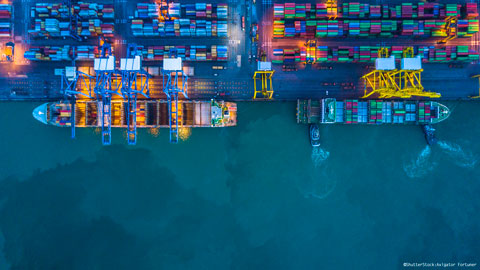

Trade Facilitation and Rules of Origin
This project, a joint venture with UNCTAD, focuses on developing tools and research to understand the extent of differences in product specific rules of origin across countries and trade agreements


Voluntary Sustainability Standards
This projects reflects on the phenomenon of private transnational governance and in particular on Voluntary Sustainability Standards and their role for trade and sustainable development


Trade Policy Research Network
The Network includes a number of projects such as the ‘Trade Policy Modelling Forum’, a consortium of modellers and their institutions and research on policy dimensions of supply chain trade and firm- and industry-level strategies in a Global Value Chain world


WTO case law project
The project, started in 2001 with financial support from the American Law Institute, brings together lawyers and economists who jointly assess the previous years WTO Case Law at an annual conference hosted by the Global Governance Programme, EUI
Europe in the World: International Relations, International Security, World Politics
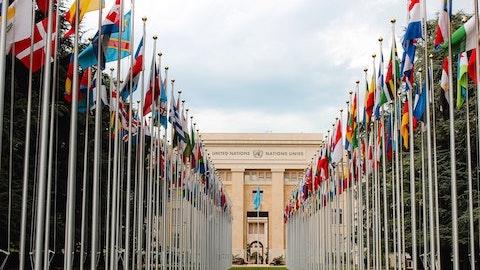

Ad hoc crisis response and international organisations (ADHOCISM)
This project asks what is the impact of ad hoc crisis responses on international organisations and on international crisis response mechanisms in particular. It wants to contribute to filling this gap through a systematic study of ad hoc crisis responses in areas such as security and health.
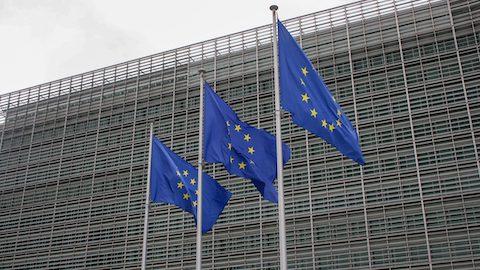

Transforming and defending multilateralism: EU support for more robust, effective and democratic global governance – ENSURED
ENSURED, a project with 14 partners from the EU, US and the BRICS (Brazil, Russia, India, China, and South Africa), studies how the European Union and its members, in a contested world in transition, can transform and defend global governance to make it more robust, effective and democratic. Integrating different literatures on international institutions and EU foreign policy, ENSURED develops a conceptual framework on global governance transformation.


People and international politics in post-war Europe
In this project, Mareike Kleine (LSE), Chris Anderson (LSE) and Stephanie Hofmann (EUI) will start examining a treasure trove of previously unused public surveys conducted during the Cold War. They will offer rare glimpses into attitudes toward European and international politics in the years following World War 2.


Global Initiative on the Future of the Internet – GIFI
This project aims to uphold the open and unified nature of the internet against competing closed governance models. It engages in research, policy development, and collaboration across various sectors to support the principles of the Declaration for the Future of the Internet.


EU-Asia
The EU-Asia project aims to enhance education, while contributing to the academic and policy debates on the international politics and economics of the Asia-Pacific writ large.


EU Foreign Policy Differentiation and Integration (EUDIC)
EUDIC addresses the occurrence of informal groups of EU Member States in EU foreign policy post-Lisbon. It will focus on EU approach to conflicts and crises.


Inclusivity and secrecy: Governing information flows when negotiating peace in complex conflict contexts
This project, led by Simone Tholens and Øystein H. Rolandsen, investigates the practice of secrecy related to peace diplomacy within a context of conflict complexity and global demands for more public oversight and transparency.
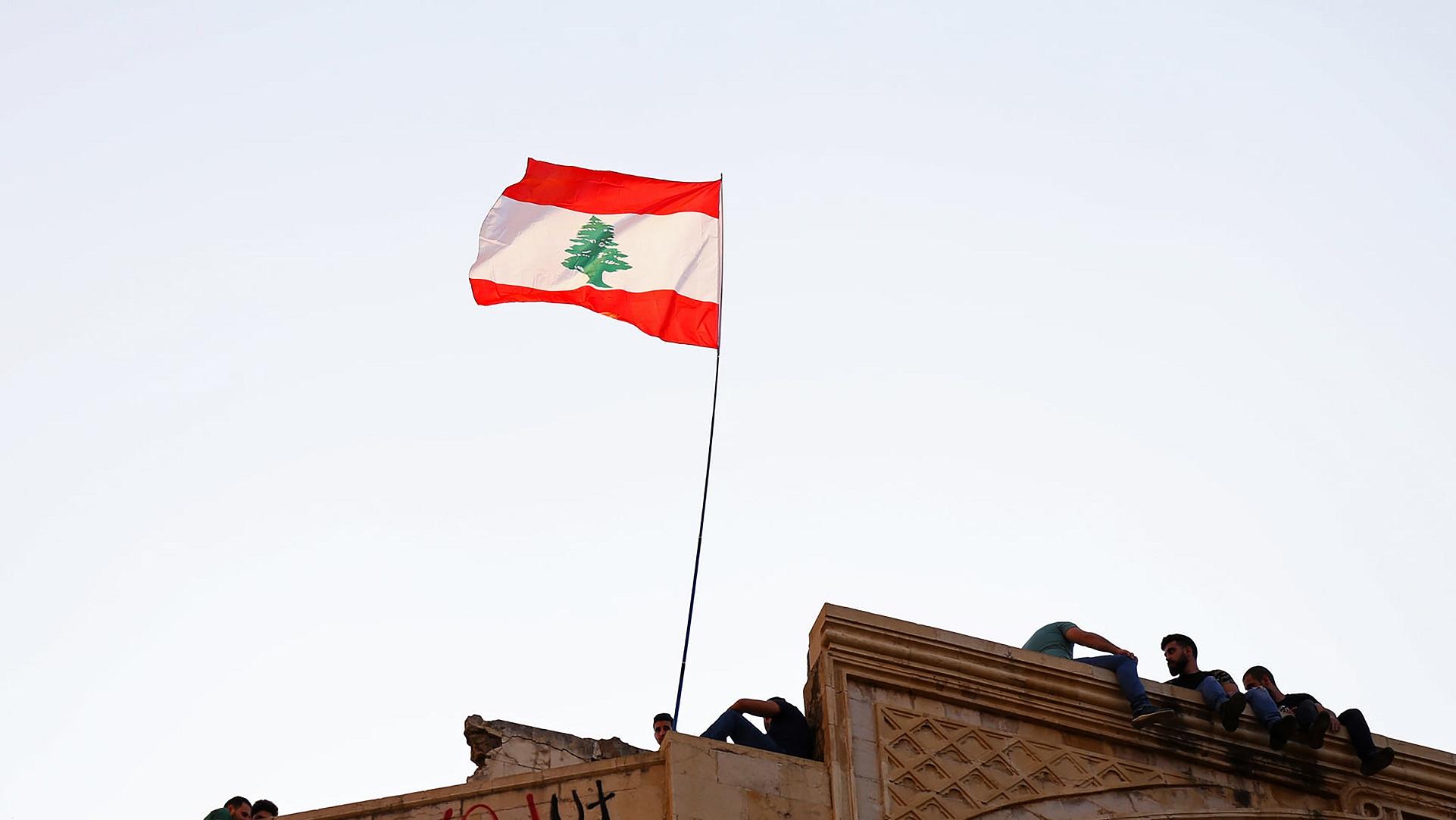

Security assistance and border management in Lebanon
This research project focuses on multi-actor interventions to strengthen Lebanese security agencies’ border management capacity. The project is led by Simone Tholens and will be implemented from 1 May until 1 November 2023.
Global Citizenship


Global Citizenship Observatory (GLOBALCIT)
GLOBALCIT is an online observatory and research network committed to fact-based and non-partisan analysis of citizenship laws and electoral rights around the globe. It publishes databases, national and comparative reports, indicators and debates on citizenship status and electoral rights. It relies on a large international network of academic experts who write country reports, collect legal documents and provide input for comparative databases.


Global Citizenship Governance
Governing global migration is one of the most pressing issues of our time. With more than 250 million international immigrants, the question of how citizenship should be distributed has become a controversial issue, morally and politically.


Citizenship acquisition by immigrants and their descendants: an international legal comparison
The Swiss Confederation has initiated a study to compare citizenship acquisition processes for first, second, and third-generation immigrants across selected European countries. Conducted by the EUI, this comprehensive analysis covers 11 nations, integrating data from the GLOBALCIT Citizenship Law Dataset to provide a detailed analysis of naturalization procedures and related conditions.


CitPolDev
Citizenship and Political Development: Membership Contestation and Liberal Norms around the World (CitPolDev) is a multiannual research project focusing on the relation between political development and citizenship law inclusiveness.


New Network Sovereignties: the rise of non-territorial states?
This online symposium builds upon the foundation laid by this previous symposium on Cloud Communities, and delves into the emerging paradigms of Network States and New Network Sovereignties.


EU-CITZEN
Academic Network to perform research services on issues pertaining to Citizenship of the Union rights and related policies.
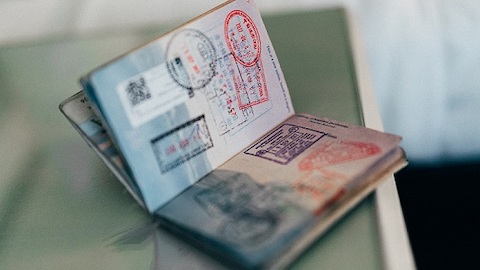

Migrant Life Course and Legal Status Transition
The MiLifeStatus, an ERC funded project, breaks new ground by investigating why, how, and for whom legal status transition matter, and how varying policies impact on this relation. After all, context matters. Not all migrants have the same opportunities or face the same obstacles when it comes to building up a life a new country.


On BlockchainGov
A 5-year long, transdisciplinary research effort aimed at restoring trust in institutions at the community and global levels, by promoting better on chain and off chain distributed governance practices. The ERC Consolidator grant is led by Primavera De Filippi and has started on 1 January 2021
Knowledge, Governance, Transformations


GlobalStat
GlobalStat is a database that aims to meet the need for publicly available information on our globalised world and globalising societies to support evidence-based analysis and informed decision-making.


TRIGGER
The TRIGGER project aims to generate knowledge on the EU’s actorness, effectiveness and influence in global governance. It will develop new ways to harness the potential of public engagement and participatory foresight in complex governance decisions, thereby also tackling emerging trends such as nationalism, regionalism and protectionism.


On The Political Economy Of Measuring State Capacity And Governance: Mapping Transnational Approaches And Their Production
Given the immediate relevance of ‘good’ governance to the Post-2015 Development Agenda, the project maps the political economy of governance and state capacity measures by systematically analysing who rates state capacity and governance where, how, what for, and by whom it is funded



GlobalStat and the Covid-19 Crisis
GlobalStat is an aggregated statistics portal with tools for analysing data on social, political, economic, environmental, and sustainability variables worldwide. It sponsors two projects related to Covid-19. ‘Comparing contexts of evidence dissemination: The effect of crisis characteristics on the politicisation of expert knowledge’ studies how expert knowledge has been politicised in evidence-informed policy-making.
The project uses a comparative perspective to analyse the effects of different types of crisis, including the current Covid-19 pandemic. ‘Dynamics in Public Health Infrastructure: Hospital Beds and Covid-19’ looks into health system parameter and frames questions for future research on the topic. It analyses how health infrastructure and systemic conditions impact health crisis responses. Moreover, Globalstat’s ‘Living in the EU’ joint publication series with the European Parliamentary Research Service mirrors COVID-19 related developments in all issues planned for 2020, as in its latest version on working in the EU.
Gaby Umbach, Director of GlobalStat and Part-time Professor, Schuman Centre
Southeastern Europe


Evaluation of human resources management in the Western Balkans
This project researches and evaluates HR management practices in public administration in the Western Balkans. The work focuses on requirements for EU accession. The evaluation methods include support of self-assessments and public service surveys that measure attitudes and experience with human resources management. The goal is to provide new evidence and actionable recommendations for Western Balkan governments and international organisations that manage the EU enlargement process.


On Contestations of citizenship in contexts of democratic backsliding: lessons from post-communist Europe
This CIVICA project is a collaboration between EUI, LSE and CEU. Using case-studies and comparative interdisciplinary research, it will unpack how citizenship regimes change when democratic governance becomes a façade veiling populist and authoritarian political objectives.
Cultural Pluralism


BRaVE: Building Resilience against Violent Extremism and Polarisation
BRaVE is an EU-funded research project researching the impact of, and means of responding to, extremism in seven different European countries.
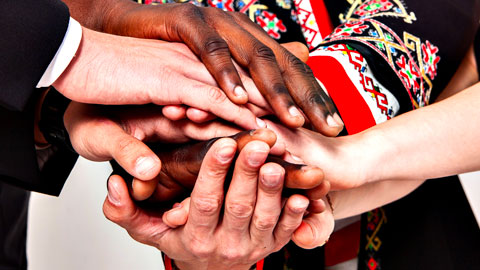

GREASE: Radicalisation, Secularism and the Governance of Religion: Bringing together European and Asian Perspectives
GREASE is looking at how religious diversity is governed in a broad range of cultures, comparing relevant norms, laws and practices, emphasising insights for countering radicalisation trends.


SIRIUS – Skills and Integration of Migrants, Refugees and Asylum Applicants in European Labour Markets
Despite the polarisation in public and policy debates generated by the post-2014 fluxes of refugees, asylum applicants and migrants, European countries need to work out an evidence-based way to deal with migration and asylum rather than a prejudice-based one.
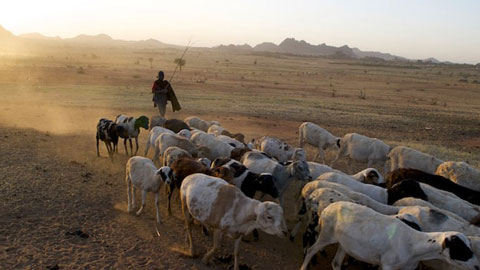

PASTRES – Pastoralism, Uncertainty & Resilience
PASTRES (Pastoralism, Uncertainty and Resilience: Global Lessons from the Margins) is a research project which aims to learn from the ways that pastoralists respond to uncertainty, applying such ‘lessons from the margins’ to global challenges.


DEFEND
DEFEND is an international partnership of academic, industrial and governmental organisations working together to tackle the emergence of African swine fever and lumpy skin disease in European livestock.


MONITOR – Global Intelligence on Racism
A monthly magazine and portal acting as a channel to bring the most innovative research on racism around the world to global civil society and policy communities


Global Elite Migration Of Opera Singers And Ballet Dancers (GEM)
GEM is a comparative, ethnographic, multi-method study of three intersecting elite migration streams from non-EU Eastern Europe, China and Cuba to EU Member States, United States, Canada and Australia. The project seeks to analyse the interaction between the ‘global elite’ migrant and his/her network as well as between globalisation and nationalism.
